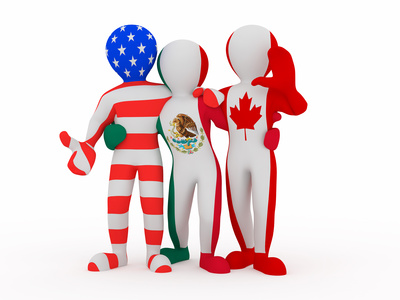
You may find your customers asking if your products qualify for NAFTA or if you can provide a NAFTA certificate. The logical questions that follow are: “What is NAFTA?” and “What is a NAFTA certificate?” In this blog, we’ll provide a basic overview of NAFTA in order to help with your understanding of this topic.
What is NAFTA?
NAFTA stands for North American Free Trade Agreement. This agreement took effect in January of 1994 with the purpose of creating a free trade environment between the United States, Mexico and Canada. Upon inception, NAFTA created one of the largest free trade zones in the world and continues to allow businesses to benefit from duty-free trade between the three countries.
How do I qualify for NAFTA?
In order to benefit from the free trade agreement, you must first determine whether or not your specific product qualifies under the NAFTA rules of origin found in Annex 401. Rules of origin enable Customs to determine which goods qualify for NAFTA treatment. They are product specific, therefore, you must review each product to determine eligibility. If you determine your item meets the specific rules of origin in the annex, the next step is to complete a NAFTA certificate.
What is a NAFTA Certificate?
A NAFTA Certificate of Origin, or CBP Form 434, is a form used to certify that certain products qualify under NAFTA. If your product does not qualify, you should not complete the certificate. Typically these are completed by the exporter, however, a producer or manufacturer may also compete the certificate for the exporter’s use. This form should include only goods which are manufactured in the U.S., Canada or Mexico, and which meet the NAFTA rules of origin. There are certain exceptions to when a NAFTA Certificate of Origin is required, so be sure to review whether or not your shipment qualifies. Once your certificate is completed, the exporter must provide a copy to the importer in order for NAFTA to be claimed at Customs.
Please keep in mind, this is a basic overview. As with all free trade agreements, there are in-depth rules and exceptions that apply. So, be sure to review the full regulations prior to claiming NAFTA treatment.
Have questions or need more help? Schedule a no-charge consultation with us!
Emmalie Armstrong is a Trade Compliance Consultant with Export Solutions – a firm specializing in U.S. import/export regulations.
